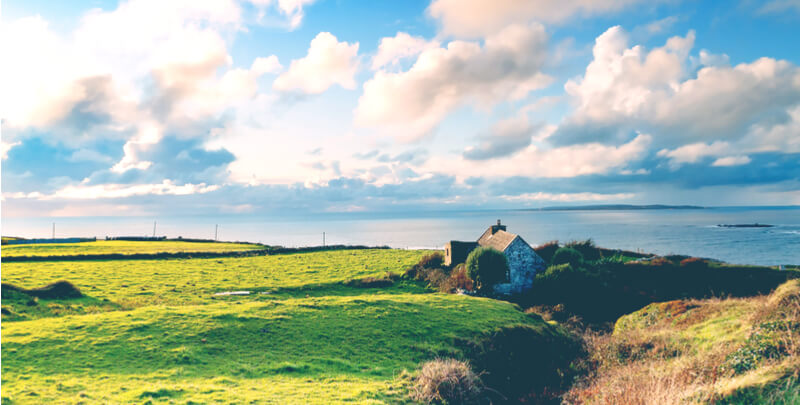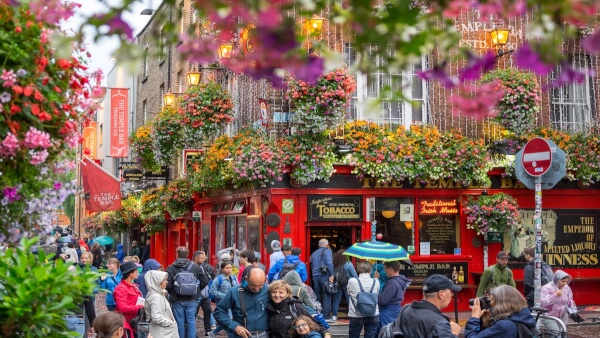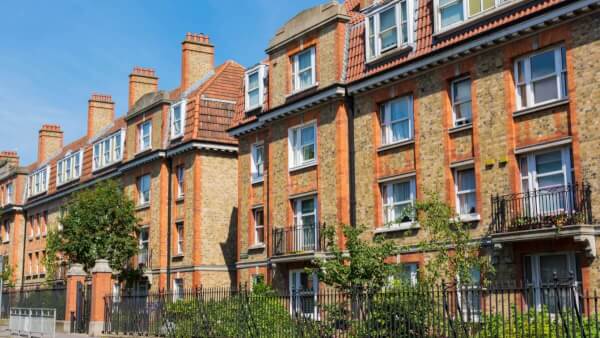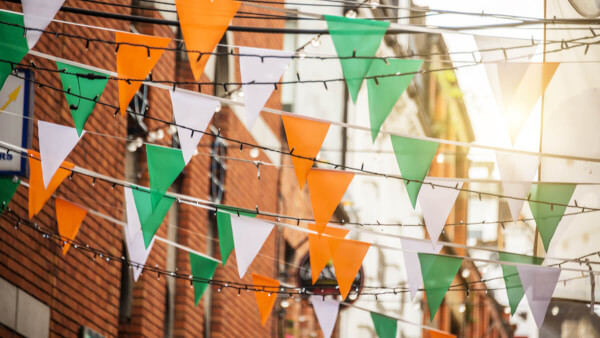Top 5 property management companies in Dublin (2025)
Are you looking for the best property management companies in Dublin? Find out all about the top local providers to take care of your home overseas.

Ireland is a small country with rolling green hills, craggy coastlines, and quaint hamlets. Famed for both its scenic countryside, occasionally dotted with old stone castles, and the hospitality and good cheer of its people.
Whether you’re a Brit, Australian, or American, chances are you’ve thought of at least visiting Ireland. Ireland is a member of the EU, has a modern, Western economy, and is a popular destination both for pensioners and partiers alike, so it’s not cheap. But for retirees on a budget, there are ways to make an Irish retirement work.
As a member of the EU, Ireland adopted the euro as its currency in 2002. At the time of writing, €1 is worth around:
To get a sense of the cost of living in Ireland, the following table lists the prices for several common goods and services for Dublin, the bustling capital and largest city in the country; Claremorris, a small town in the rural northwest part of the island; and Limerick, a popular, sizable city with Atlantic Ocean access.
| Dublin | Claremorris | Limerick | |
|---|---|---|---|
| Rent (one-bedroom apartment in city centre) | €1,100 | €390 | €671 |
| Rent (three-bedroom apartment in city centre) | €1,816 | €675 | €1,000 |
| Utilities (for 915 sq ft apartment) | €150 | €140 | €152 |
| Price per square meter (apartment in city centre) | €3,589 | €1,000 | €1,500 |
| Internet | €43 | €38 | €38 |
| Milk | €0.97 | €0.97 | €0.99 |
| Meal for two (mid-range restaurant) | €59 | €50 | €40 |
| Gas (one gallon/0.5 litre) | €5.74 | €1.31 | €1.26 |
| Bottle of wine (mid-range) | €10 | €9.50 | €10 |
| Car (Volkswagen Golf) | €23,000 | €22,000 | €22,000 |
| One-way ticket (city transit) | €2.50 | €3.50 | €2.10 |
| One pair of jeans (mid-range) | €73.43 | €65 | €75 |
Source: Numbeo.com
And, if you need to transfer money abroad once you’ve moved to Ireland, you’ll want to be aware of the fees and exchange rates charged by different financial institutions. Most banks and transfer services promise low fees up-front, but take advantage of you by using a higher exchange rate and skimming the difference.
To ensure you get the most out of your international transfer, give Wise a try. That way, your money will be converted at the real exchange rate - the same one you’ll find on Google - and you’ll get more money back in your pocket.
Taken as a whole, Ireland is a safe country with low-crime rates, though authorities in larger cities have seen a rise in petty crimes such as shoplifting in the past few years.
Ireland is a small country with a relatively consistent climate and culture across the island. You won’t find a wild swing in lifestyle or the view from your window from one small town to the other.
If you want to be in the heart of the action, or as much action as there is, you can choose to live in Dublin. Though it’s the largest city in the country, it still only has around 500,000 residents. It’s dense, charming and welcoming, with a lot to do in a small area. But it’s a city in demand, and house prices are quite steep. Here’s a perk for seniors: free transportation is provided to all residents over 66.
Consider settling in Bray, in County Wicklow. It’s a thriving coastal town just 30km south of Dublin. Bray has cheaper housing but it’s still just a train ride from the capital, and a ferry ride across the Irish Sea from England. Brimming with pubs, restaurants, and live music, it can give you the Dublin vibe without Dublin real estate prices.
If you like the briny sea air but want to avoid the rain as much as possible, try Waterford. The southeast part of the island is the driest and warmest part of the country. The quaint coastal city of 55,000 souls is often overlooked by tourists, but that just makes it a quieter place to settle down.
There’s also the famous Irish countryside, perennially green and lush, where you’re more likely to find housing for a bargain. There’s not a great difference from one village to another - green, rolling hills look good in any postal code - so think about settling in a town that is close to attractions that interest you. Athlone is in the middle of the country and close to the major road networks, so would be a good place for exploring Ireland’s rich natural and historical treasures. Dingle is a good home base on Ireland’s gorgeous southwest coast. Killarney is close to a national park and surrounded by modest mountains. And if you really want to get away from it all, there’s always the simple, sparsely populated north of the country. The village of Dunfanaghy has cheap housing and a golf course that looks out onto Sheephaven Bay. If you choose to live far from a city, just be prepared for the locals to take some time accepting you into the community.
Ireland has a mild climate that is consistent across the island. The average temperature is 18°C (65°F) in the summer and 3°C (37°F) in the winter. It does, however, rain 150 days a year.
The Irish are famous for their pubs, which are institutions not merely for drinking stout, but for making and keeping friends, playing games and music, organizing community activities, and catching up on local news and gossip.
On the coastal cities, where most people live, people like to like to spend time on the beach, fish, or sail in the choppy waters off the coast.
Since it’s just across the Atlantic, Ireland shares many cultural similarities with America, and many Irish people have an affinity for American culture. The Irish have a reputation for being friendly, hospitable, and for having a great sense of humor, especially when telling stories. There are even storytelling festivals held all over the country.
UK, US, and Australian citizens don’t need a visa to enter Ireland, and currently UK citizens can stay indefinitely with no restrictions. EU and Swiss nationals can stay in the country for up to three months. After that, you must register with the authorities, which requires you to provide your passport, bank statements, and proof you’re able to support yourself with passive income from a pension or 401(k), real estate or stock investments, or other type of financial instrument. It’s also a good idea to keep a valid passport for your home country.
Even if all of your income comes from abroad, you'll still need to file an annual tax return with Ireland if you live there more than six months of the year. When they file their taxes, expats may be required to complete additional filings and be subject to specific reporting requirements. Taxation regulations vary between countries, so consult an accountant for advice on how to remain tax compliant back home and in your new country.
Irish immigrant authorities have strict income requirements, though. If you’re not an EU or Swiss citizen, you must be able to prove that you have an income of €50,000 ($55,138), or €100,000 ($110,276) for couples. You must renew your residency permission every year until you’ve been there five years, at which point you can apply for a five-year residency. So if you’re hoping to live cheaply in Ireland, around €4,000 ($4,600) before taxes is your minimum. You’ll be able to afford relatively nicer accommodation on a modest salary of $60,000-$75,000 a year. To retire comfortably, you’ll want to have $90,000 or more coming in from your retirement investments.
One of the greatest appeals of retiring in Ireland, is that it’ll welcome you with open arms. As already mentioned, the people are warm and good-humored, and as long as you can live with the rain, it’s a country that’s easy to fall in love with. No matter where you choose to retire to, good luck in your exciting Irish adventure!
*Please see terms of use and product availability for your region or visit Wise fees and pricing for the most up to date pricing and fee information.
This publication is provided for general information purposes and does not constitute legal, tax or other professional advice from Wise Payments Limited or its subsidiaries and its affiliates, and it is not intended as a substitute for obtaining advice from a financial advisor or any other professional.
We make no representations, warranties or guarantees, whether expressed or implied, that the content in the publication is accurate, complete or up to date.

Are you looking for the best property management companies in Dublin? Find out all about the top local providers to take care of your home overseas.

Moving to Ireland from the US? This guide covers all the essential information for relocating to Finland as an American, including tips and insights.

Interested in buying land in Ireland? Here’s everything you need to know about buying a plot of land abroad as an American.

Thinking about moving to Ireland? Find out what you need to know about renting in Ireland in this guide.

Thinking about buying property in Europe? Your best bet might be Ireland. Learn everything about buying property in Ireland right here.

Ireland is known for its love of food and drink, picturesque countryside and bustling cities. Read on to find out the pros and cons of living in Ireland.